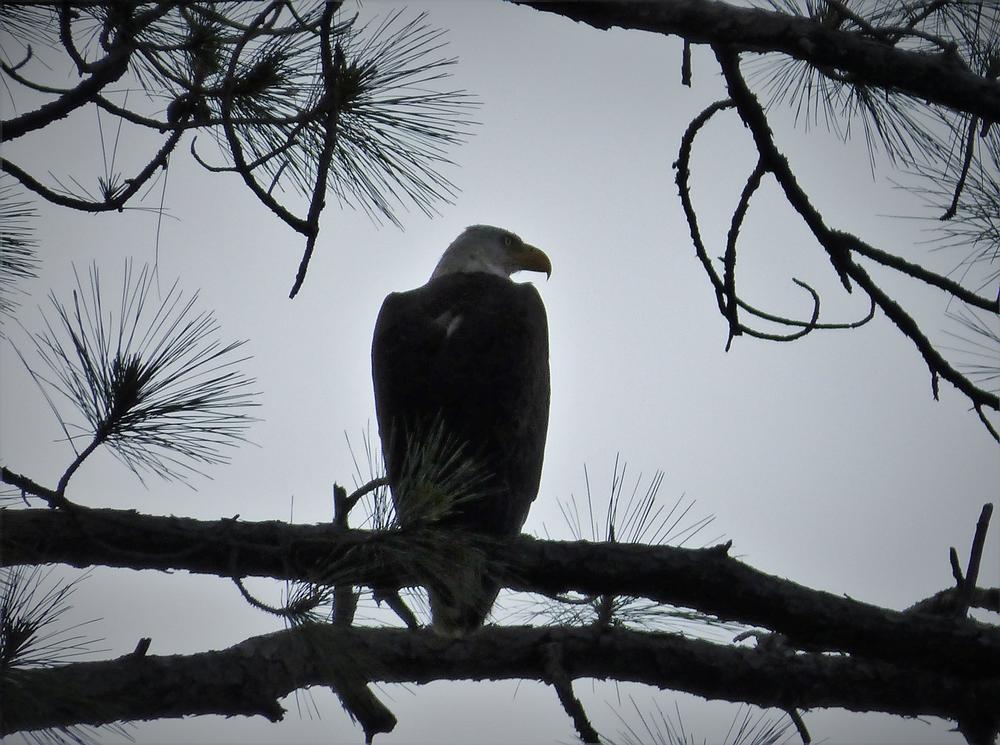
Caption
A bald eagle roosts at Crooked River State Park in Camden County, Ga. Though the national bird has rebounded from near-extinction in the 1970s, a severe bird flu epidemic threatens that recovery, scientists say.
Credit: Gail Hampshire / Creative Commons

